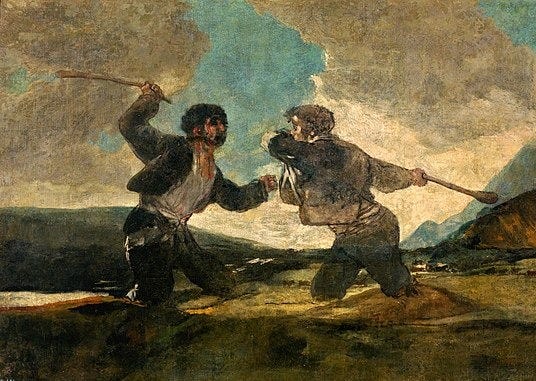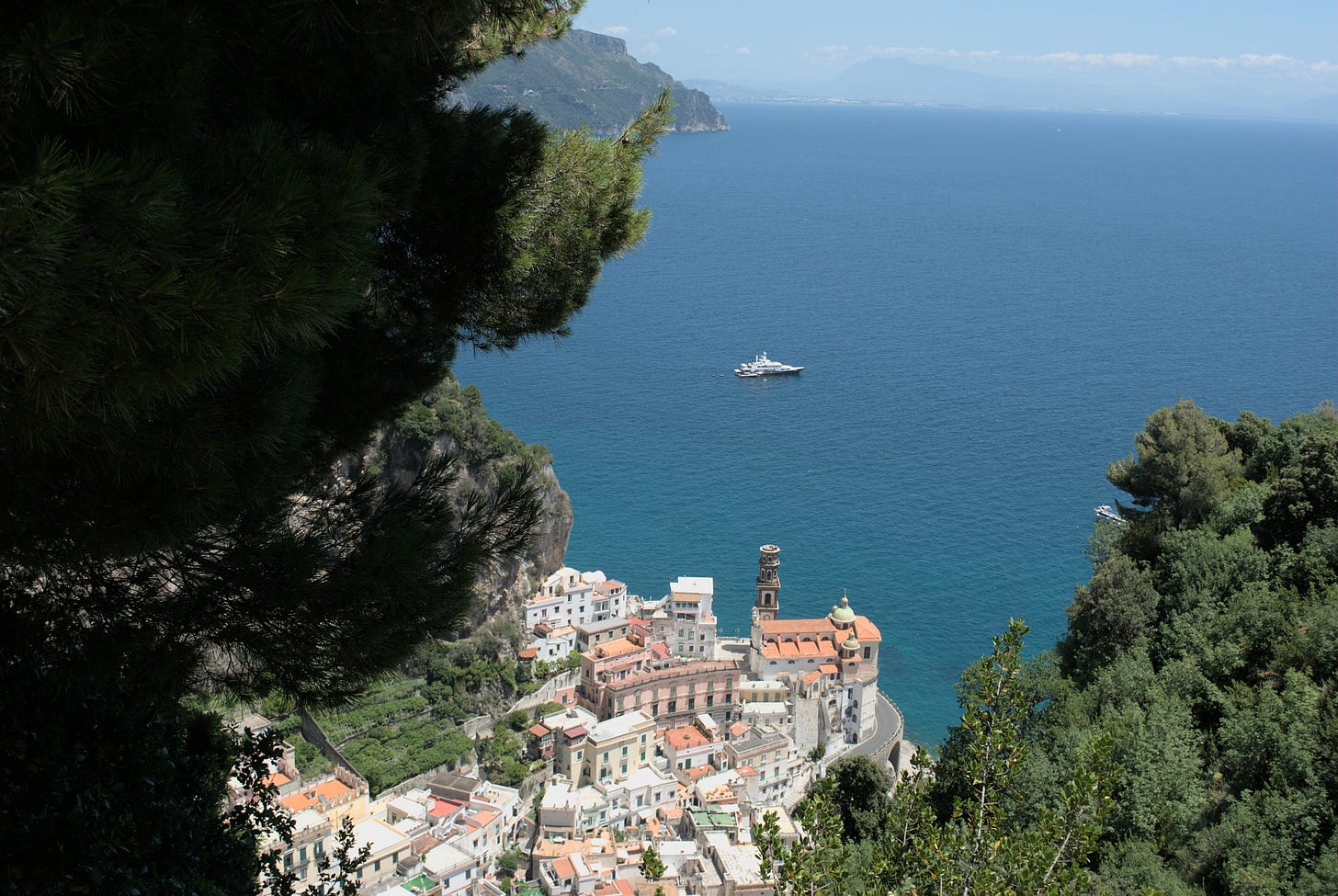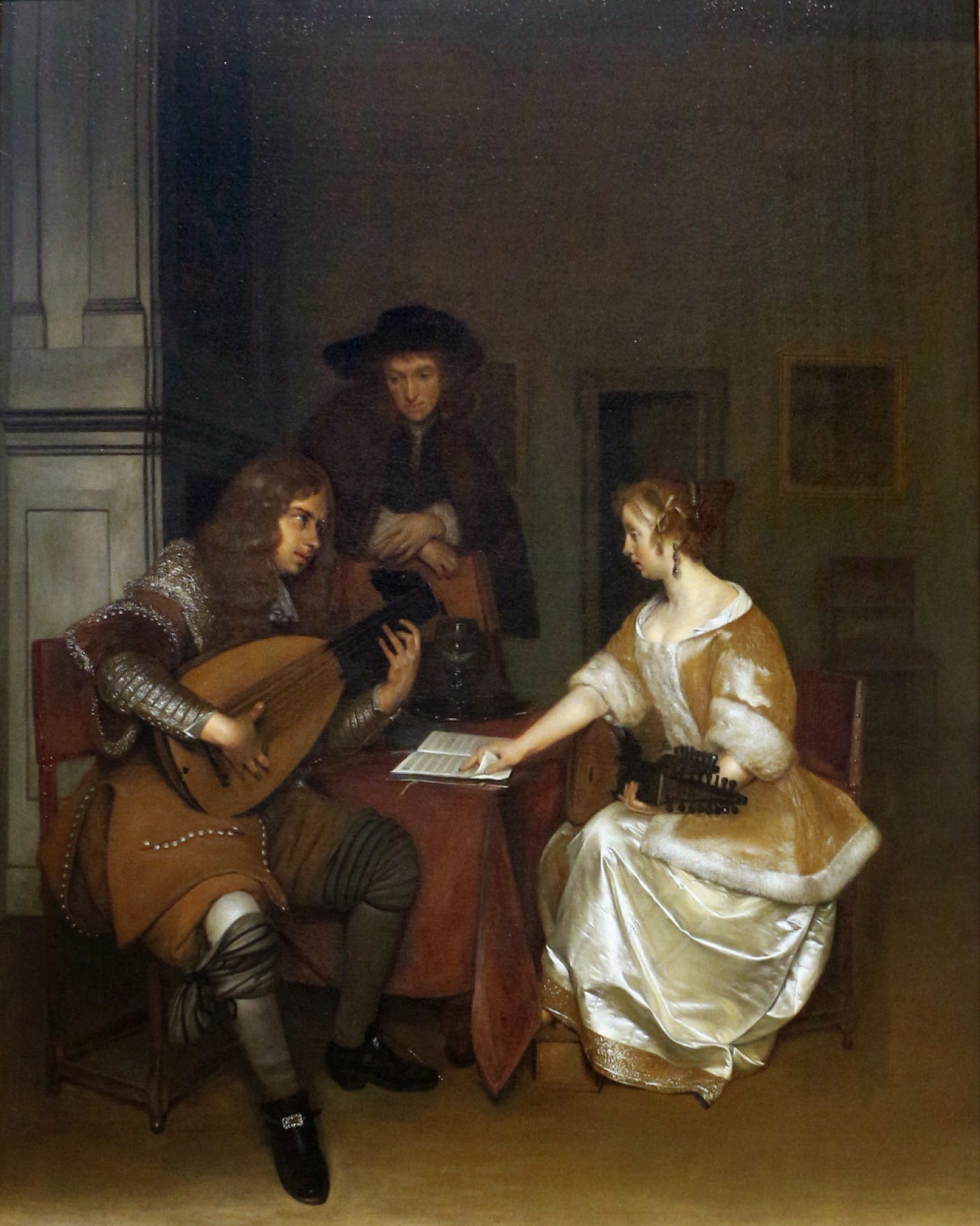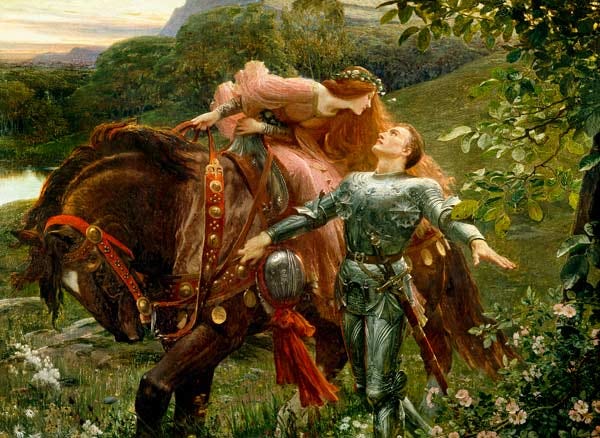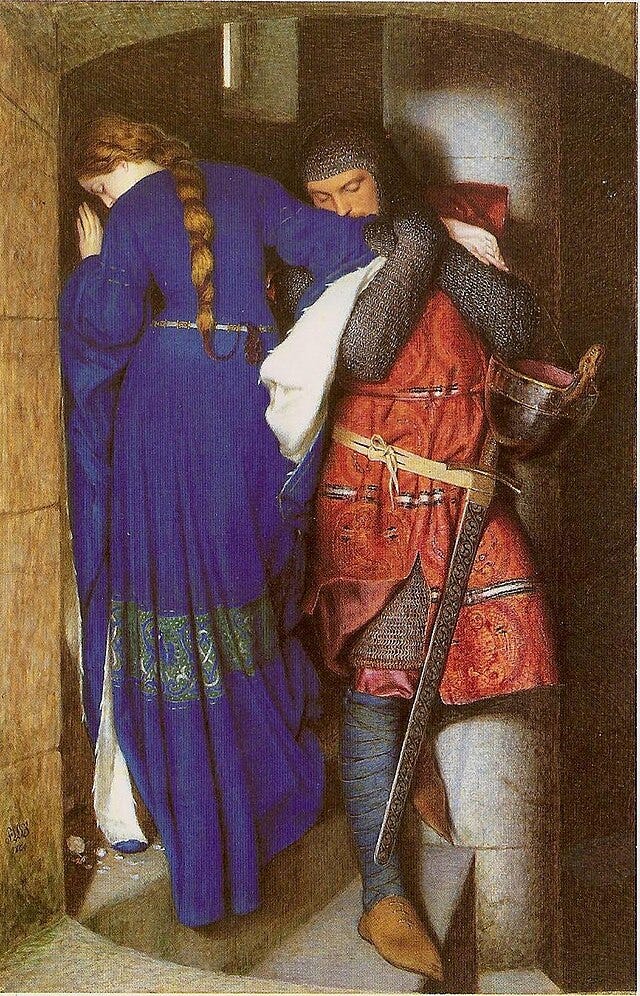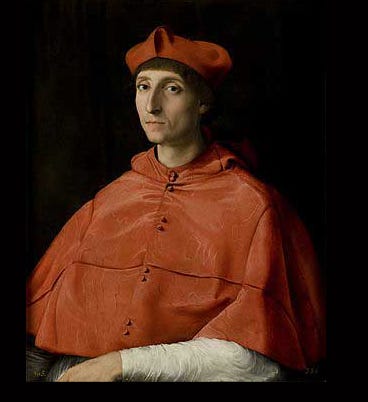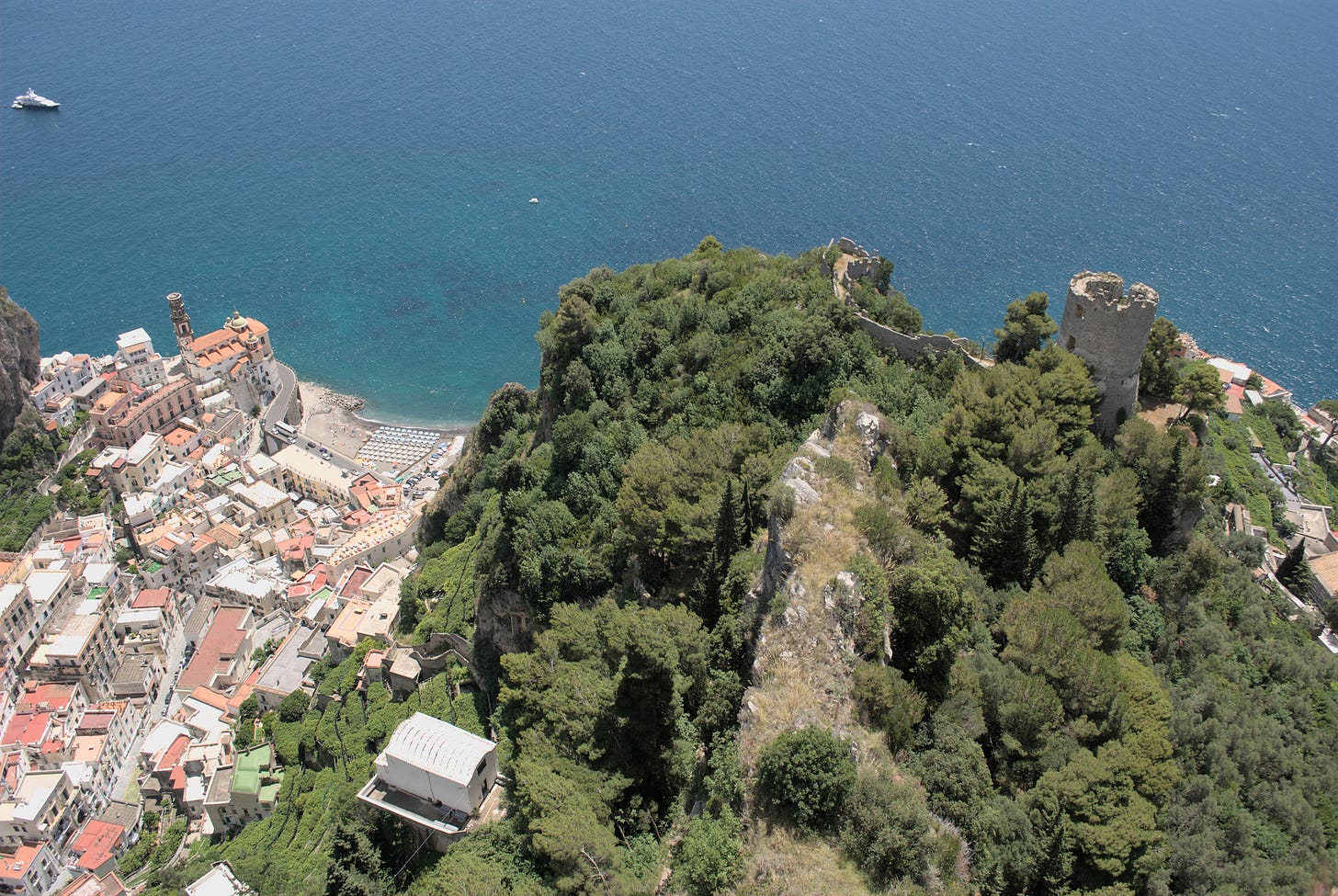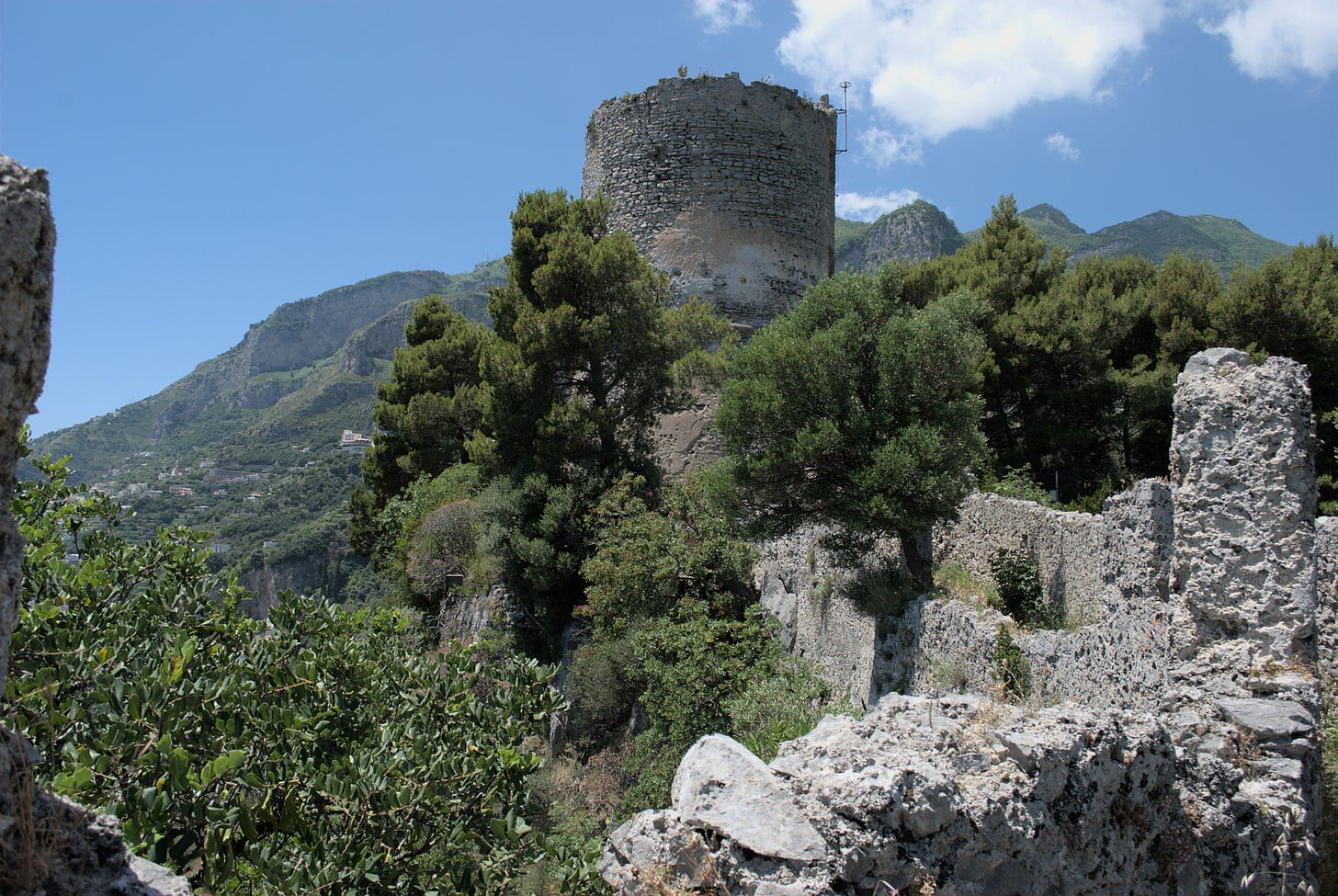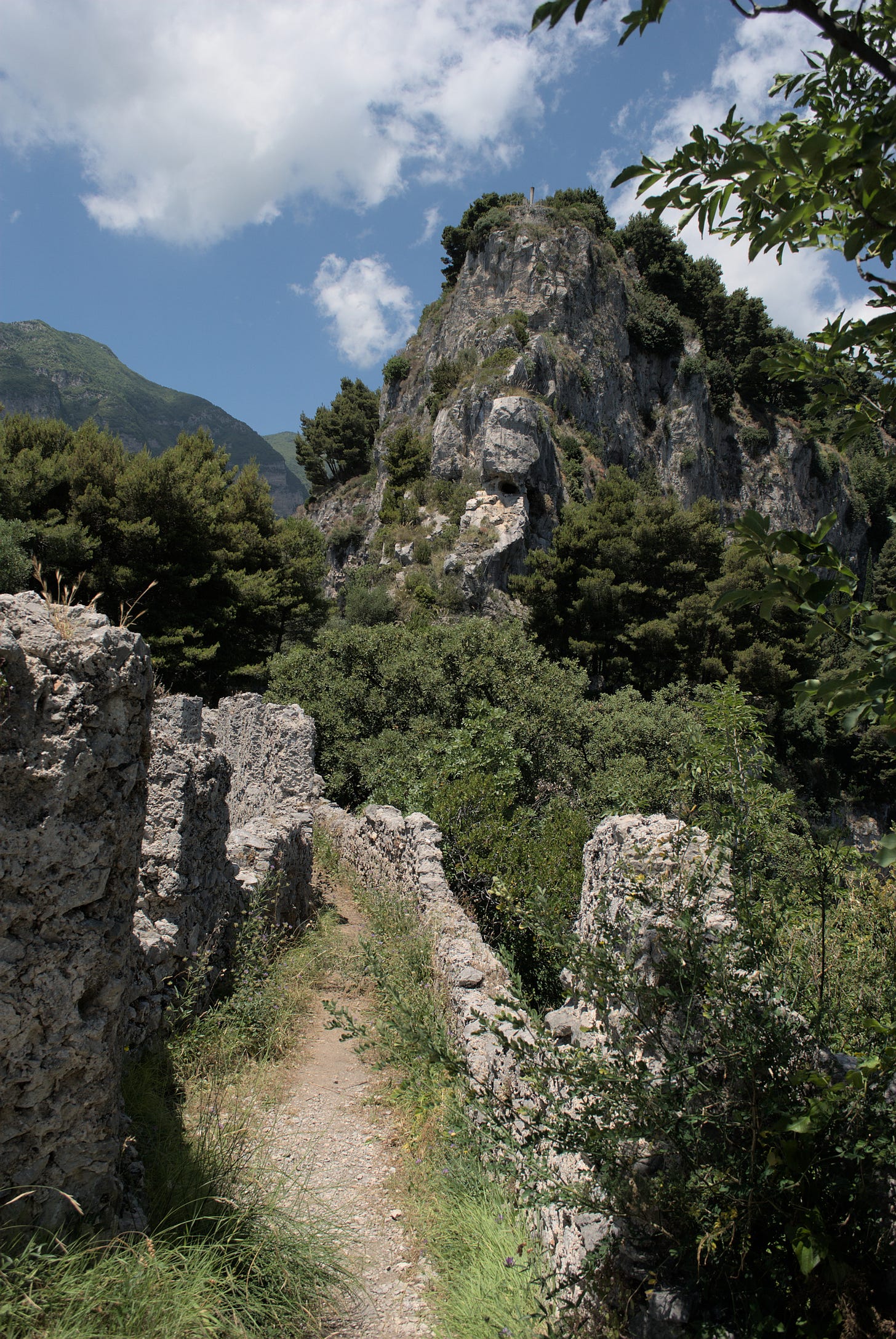The Chilling True Story of a Royal Scandal and a Love Erased
Amalfi's Darkest Legend: The Duchess, Her Lover, and Her Brother. Could This Love Story Be More Tragic Than Romeo and Juliet?
Today, we return once again to the Amalfi Coast, and I will tell you about the terrible fate of a real, beautiful princess. I don't know; maybe she wasn't that beautiful, honestly. History has left us no portrait of her, but it doesn't matter. It's just the genre that obliges. Her name was Joanna.
Joanna was the niece of King Ferrante I of Naples. She was born and raised in the splendor and scandalous freedoms of the Neapolitan court. In 1497, she had to marry Don Alfonso Todeschini Piccolomini, the second Duke of Amalfi.
Me: “Imagine her, barely twenty, stepping into a world of silk gowns and whispered secrets…”
Joanna (thinking): “Naples… the music, the laughter, the freedom to choose my embroidery thread! Now… Amalfi. Stone walls and disapproving stares.”
Her happiness was short-lived.
Me: “Just a year. Can you believe it? A year of being a Duchess…”
Joanna (to her ladies): “Tell me again how fortunate I am. Remind me how many women would kill for this title.”
In 1498, she was a widow.
Me: “They say Don Alfonso was a difficult man, ten years her senior and quick to anger.”
Servant (whispering): “The Duke is in a rage again, Duchess. Best to stay out of his path.”
Her husband was 10 years older than her, with a surly character that was also the reason for his death: he argued with another gentleman and was stabbed.
Life at the court of Amalfi with customs that were more like a prison. The peasants took their wives to do the heaviest work because they couldn't afford a mule, and the woman didn't cost anything. The ladies didn't have to do heavy work, but apart from that, they didn't count for anything anyway.
Me: “She must have felt trapped. From a gilded cage to... well, a stone one. Can you hear the whispers of the Amalfi court? 'A Neapolitan princess? What good is she here?'”
Amalfi Lady: “She puts on airs, that one. Thinks she's too good for us.”
Can you imagine how she felt, a poor woman who had fallen from the court of Naples into this situation? Her only task was to raise the future Duke of Amalfi, her husband's posthumous son.
At this point, a splendid young man named Antonio arrived at the court of Naples after several trips abroad. He belonged to the city aristocracy, a Neapolitan patrician, and entertained the ladies in love with him at the king's court. They also described this young man in letters to their friend Joanna.
Me: “And then... Antonio. Imagine the excitement when the letters started arriving from Naples.”
“He was a very gallant and virtuous gentleman, and besides having a good presence and being very brave in his person, he was a very gentle horseman. He was also well-read and sang sweetly with the lute in his hand.”
Me: “Words carefully chosen to stir her heart. 'Gallant,' 'virtuous,' 'brave'… The ladies of Naples knew exactly what would tempt a lonely widow.”
Joanna (reading): “A lute... how long has it been since I heard music?”
What woman could resist such a man? It is clear that after all these letters, the young widow had to do everything possible to get him to her. She requested this young man to help administrate her estates as court butler.
Me: “A court butler? A convenient excuse to bring him close. And of course, Antonio accepted. Who could refuse the Duchess of Amalfi?”
Antonio (to his friend): “The Duchess herself requested my presence? It seems my charm knows no bounds! And Amalfi... I hear the coast is breathtaking.”
After the correct period, the Duchess secretly gave birth to a son. She managed to keep this fact hidden, but not the natural changes of the body of a mature woman after the second birth. Moreover, she soon became pregnant for the next time.
Me: “Secrets are hard to keep, especially when they start to show. The whispers grew louder, more malicious.”
Joanna (to Antonio): “They're starting to notice. I can see it in their eyes. We have to be careful.”
The news about the strange changes in the woman became known to Cardinal Luigi d'Aragona, Giovanna's brother. Antonio Beccadelli was not of such social rank as to be able to aspire to the hand of a woman of royal blood such as Joanna of Aragon.
Me: “And here enters the villain. Cardinal Luigi is a brother and protector of the family's honor. Can you hear his outrage? A Beccadelli? A butler? Unthinkable!'”
A woman could not tarnish the family's honor, which is of the utmost value!
Cardinal Luigi (to his advisor): “This cannot stand. My sister has lost her mind! A scandal like this will ruin our family.”
The brother, disapproving of the bond for reasons of social rank, decided to punish the lovers. He declared that anyone who met Antonio must kill him. Antonio had run away. The assassins sent by the cardinal missed him. But the brother did not withdraw the order. And the hunt had only just begun.
Me: “A death sentence hanging over Antonio's head. Every shadow concealing a potential assassin.”
Antonio (to Joanna): “I have to leave. Your brother... he won't stop.”
Joanna: “No! I won't let him take you from me. We'll run away. Together.”
Giovanna couldn't live without him. Crafting a pilgrimage with all her court, she fled Amalfi, taking Antonio's children and the future Duke (in 1510). She wasn’t afraid of her brother, but she was sure that he would kill her morganatic husband, Antonio.
Me: “Desperate, she risked everything. Imagine the chaos of that flight – a duchess, her children, and her forbidden lover, all fleeing under the cover of a religious pilgrimage.”
Joanna (to her son): “Smile, darling. We're going on an adventure.”
Her brother's messengers reached Giovanna and convinced her to return to Amalfi. When they arrived in the town, they did not stop but took her directly to the tower above it, where they locked her up. In the night, both the mother and her children were strangled, except for the young Duke, who was sent to the palace immediately upon arrival. (Some sources say that Duke, Giovanna's husband, died in 1505, and they had two sons, the second of whom was called Enrico. Both lived to be 60 years old.)
Me: “Betrayal. Sweet words luring her back to a living tomb. The tower... a silent witness to unspeakable horror.”
Messenger: “The Cardinal sends his regards, Duchess. He promises your children will be well cared for.”
Joanna (screaming): “Antonio! No! Please, not my children!”
In the meantime, Antonio was waiting for them in Bologna. The news of their deaths had reached them, and a killer found Antonio in the city and warned him that he would not kill him out of compassion. However, other killers were already in Bologna and were waiting for him near the church where he was supposed to go, he said. That gentleman also told him the road not to take, but Antonio went there on purpose. And he was killed.
Me: “Even in his grief, Antonio couldn't escape the Cardinal's reach. A final, brutal act to erase their love from history.”
Killer: “I am sorry, sir. But orders are orders.”
Antonio: “Joanna...”
This is the real story of the Torre dello Ziro, which overlooks Amalfi and is still seen as a place to avoid by locals.
Me: “So, look at the Torre dello Ziro of my photos. Remember Joanna and Antonio, and the tragic price they paid for love.”
Literature:
The Duchess of Malfi by John Webster (play, 1612-1614): This is undoubtedly the most famous work inspired by the story. Webster's Jacobean tragedy takes considerable liberties with the historical facts, but the core narrative of a widowed duchess who secretly marries her steward and faces her brothers' wrath remains. Webster heightens the drama, violence, and psychological complexity of the characters. The play is known for its dark atmosphere, striking imagery, and exploration of themes like corruption, social injustice, and the destructive power of ambition.
Lope de Vega also wrote a play based on the story: El Mayordomo de la Duquesa de Amalfi (The Duchess of Amalfi's Butler).
ARE YOU INTERESTED IN OTHER STORIES?
They are here: https://amzn.to/42zESYu
P.S.
“Either My Son Or Nobody” is now available in a third edition, only in digital formats.
“Those Eyes Behind The Glass Door” is available, too.
I do not have paperbacks.
Please email me at liudmila.books@gmail.com to request a special price for my stories and specify your preferred file format. I typically respond within one working day.
I can add dedication on request.






